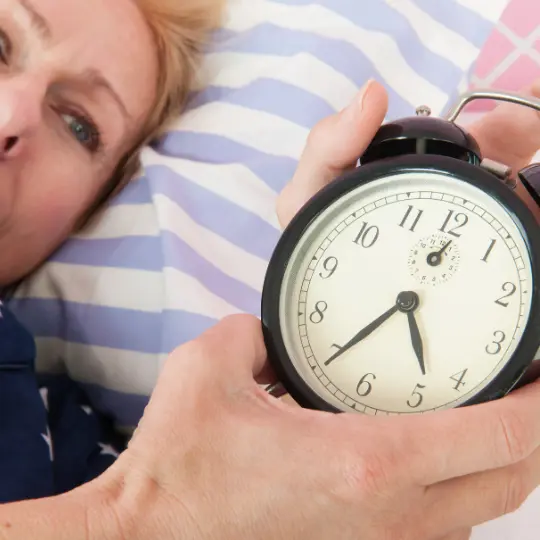MENOPAUSE AND MEMORY
Have you ever experienced forgetting your tasks which you normally do? How about your daily routine at work, do you find it hard to remember the pattern of your to-do list? And how about forgetting something or what you are about to say and do? It is such a pain, we understand. Oh and by the way, are you in your menopause or are you past post-menopause? Then maybe you are suffering from menopause and memory problems.
But… take courage, these menopause and memory problems are just temporary and you will eventually be fine. *winks*
Menopause and memory problems can get so frustrating and upsetting at the same. And not all people can understand what you are going through, and yes at times, even you, could not understand yourself.
Menopause is a natural process in a woman’s life where the menstruation stops for a year. It has three stages: peri-menopause, menopause and post-menopause, respectively. Having no menstruation would also mean fewer production of oestrogen hormones. Consequently, this will bring some complications during menopause and memory problems is one of them, as oestrogen hormones are apparently responsible for many of the body’s functions.
Oestrogen, Progesterone and Neurons
Given that is a known fact that memory deteriorates as a person’s age is advancing, let us see the connection between menopause and memory and hormones. “Are hormones really responsible?”, you might wonder. Well, oestrogen hormones as well as progesterone are produced in significant quantities prior to menopause, however after menopause these quantities deplete and thereby affecting some body functions.
These hormones, although not yet fully understood by the scientists on how they affect the brain, are believed to be an important factor in the survival and strength of neurons in the brain. Neurons, like messages containing information and data, are electrical impulses that the brain is processing and analyzing. These impulses have important involvement in the memory processing in the brain. (1)
“Middle-aged women can remember more than men their own age, but new research suggests that memory may fade as oestrogen levels drop during menopause. The study by Harvard Medical School researchers was led by Jill Goldstein, a professor of psychiatry and medicine.”, according to Mary Elizabeth Dallas published by WebMd archives. (2)
Have you ever heard the term - “brain fog”? You might wonder, “a fog in the brain? What is that?” Yes that is the term researchers say to describe being forgetful or struggling to think or remember something clearly or if you are having a struggle to focus or concentrate on something. (3) So try to remember this term the next you have difficulty trying to concentrate on something or even forgetting what the name of your acquaintance is, and know that it is normal.
5 Ways to Improve Your Memory Functions
Menopause and memory problems are natural and temporary. They are inevitable however there is always a room for improvement, eh?! We can always look for ways we can do better and alleviate what we are somehow experiencing.
So here is a practical list of things we can do in our power:

1. Exercise your brain.
Take up the challenge of challenging your brain once in a while. Play board games, crossword puzzles and magazines or online quizzes.
Take a challenge. Crossword puzzle is a good one to start with.
It can also be interesting and challenging if you venture to learn a new language or even a musical instrument. And don’t forget to practice your social skills when you catch up with friends and if ever you might end up attending a big gathering. It will be a good opportunity!

2. Eat the right kinds of food
Eating green leafy vegetables and fruits is always good not just for the young but also for the ‘young-at-heart’.
Salmon and a mixture of different nuts are good source of good and healthy fat good for brain function.
Try to change your diet from oily and fatty to healthy and nutrient-packed food.

3. Have a good and quality sleep
Set your sleeping schedule and follow it carefully in order to establish your sleeping routine. Having a good night sleep requires lower intake of caffeine and alcohol and quitting smoking also.
Lack of sleep often leads to mood swings and feelings of restlessness and irritability.
Moreover, wearing a very comfortable sleeping attire in a conducive bedroom - well-ventilated and dark - helps a lot to achieve a good rest.

4. Keep an exercise routine
After exercising your brain, you have to exercise your body.
Manage at least 30 minutes everyday which includes brisk walking, aerobic classes and dancing.
These kinds of exercise help the brain areas which are crucial to memory information processing. (1)

5. Ask for help from your doctor
Asking for help from your physician if needed.
Menopause and memory problems are normal as you advance in age however if what you are experiencing are so intense, it is wise to talk to your doctor
Menopause and memory problems are normal as you advance in age however if what you are experiencing are so intense, it is wise to ask your doctor for advise regarding some possible options to address your complications.
It can be tough, yes, but hey there's always help and assistance available.
We sincerely hope and aim to make your menopause journey as graceful as it can be.
REFERENCES
(1) https://www.healthline.com/health/menopause-and-memory-loss#memory-decline
(2) https://www.webmd.com/menopause/news/20161109/memory-can-fade-after-menopause
(3) https://www.webmd.com/menopause/news/20161012/more-evidence-menopause-brain-fog-is-real#1
Menopause can really make some changes in your
body and health so be realistic. Our herbal
supplements may help.
RELATED POSTS

MENOPAUSE AND HEART DISEASE
Cardiovascular diseases are the leading cause of death for older women in the United States, Canada and Australia.

DEPRESSION IN MENOPAUSE
Depression in Menopause is more common than you may think.

MENOPAUSE AND INSOMIA
This is a more common complaint in women than in men and is detrimental to your health.

MENOPAUSE & HYPERTENSION
The onset of hypertension during menopause can cause additional concerns to women's health.

MENOPAUSE & WEIGHT GAIN
Weight gain can rob you of expanded activities you can do before and foods you want to eat - yes, because you...

MENOPAUSE & HOT FLASHES
One of the most common complications of menopause is probably the hot flashes and the one that can last for a long time...
EXPLORE

STAGES OF MENOPAUSE
The clues and symptoms are the result of unbalanced and changing hormone levels of oestrogen in your body.

COMPLICATIONS
Complications of menopause - the risks women face for certain health problems; heart disease, depression, weight gain, insomnia, hypertension, osteoporosis

MENOQUOTES
There are 3 billion women who, sooner or later will experience Menopause but many still find it uncomfortable to talk about… it’s about time we change this.